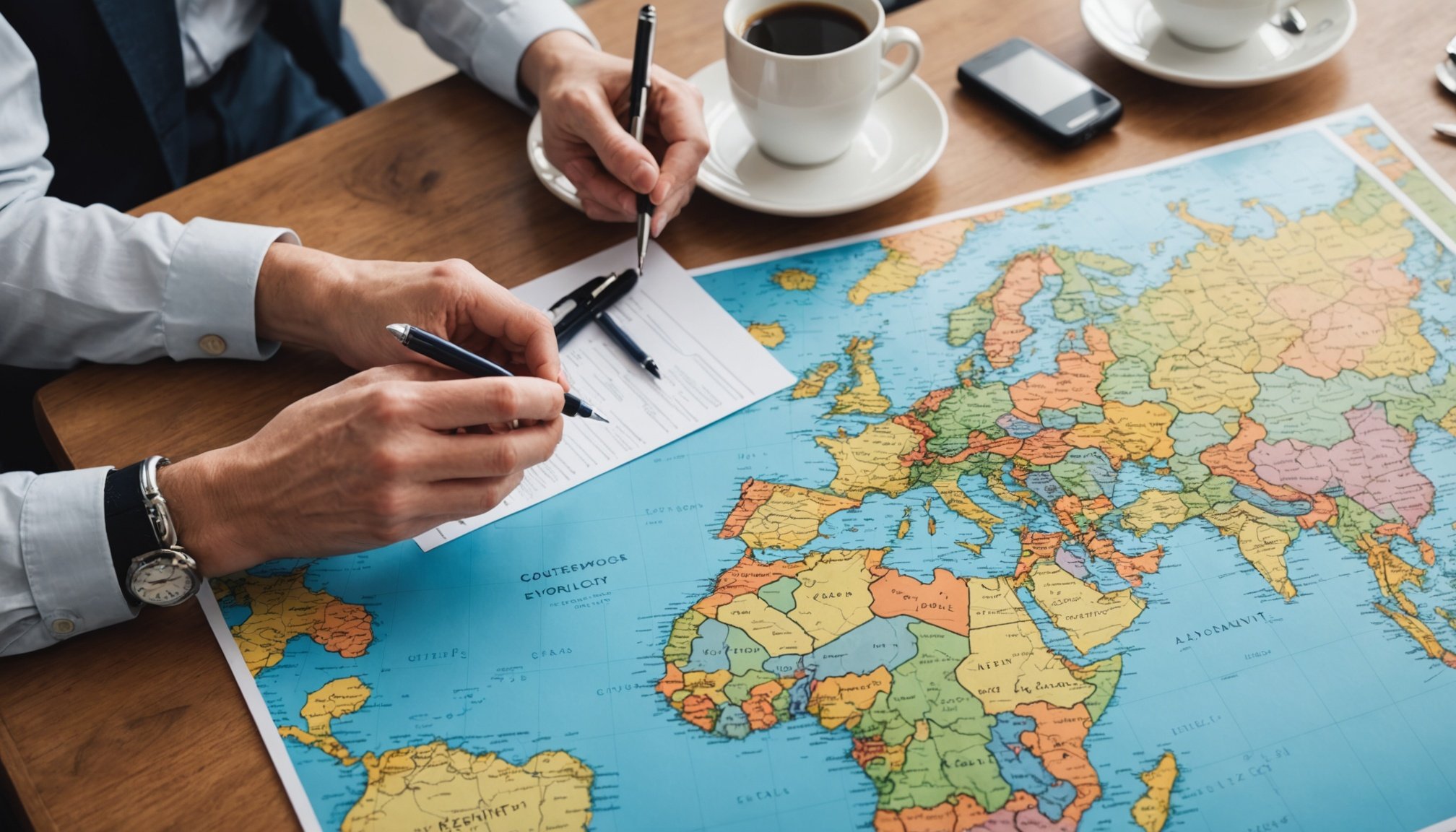Understanding Customer Loyalty in the UK Travel Industry
In the dynamic world of UK travel agencies, fostering customer loyalty is paramount. Customer loyalty strategies in the travel industry can significantly affect a company’s profitability. With the ever-changing landscape, travel agencies must prioritize customer retention by adapting to evolving trends.
Definition and Importance of Customer Loyalty in Travel
Customer loyalty refers to the ongoing relationship between a client and a service provider. This relationship encourages repeated business. For UK travel agencies, cultivating customer loyalty entails offering unique experiences and consistency in service quality. Loyal customers contribute to long-term success and profitability.
Topic to read : Unlocking Success: Proven Strategies for UK Charities to Maximize Crowdfunding Potential
Current Trends in Customer Retention
In the travel sector, personalization and innovative loyalty programs rank high among strategies promoting retention. Leveraging data analytics allows travel agencies to predict customer needs and enhance satisfaction. The need for personalized experiences keeps evolving, with agencies finding creativity in their retention initiatives.
Statistics on Loyalty Impacts on Profitability
Loyalty can be quantified by how much repeat customers spend compared to new ones. Studies highlight that retaining customers could be five times more cost-effective than acquiring new ones, boosting profitability. UK travel agencies must leverage these insights by crafting strategies that encourage repeat business.
Have you seen this : Top tips for selecting the ideal used cnc lathe for your needs
Effective Loyalty Programs for Travel Agencies
In an increasingly competitive market, loyalty programs are vital for travel agencies seeking to enhance customer retention. Such programs often feature rewards that encourage clients to return for future bookings, fostering long-term relationships.
Types of Loyalty Programs Tailored to Travel Agencies
Agencies can choose from several loyalty program models. Point-based programs, where customers earn points for each booking, are straightforward and popular. Another approach is the tiered rewards system, offering increasing benefits with more frequent bookings, thereby encouraging customers to ascend to higher tiers. These can effectively spur repeat business by rewarding loyalty over time.
Case Studies of Successful Loyalty Programs in UK Travel Agencies
Consider the success of Nectar in the UK, which partners with travel agencies to offer loyalty points that can be used across various sectors. Their model demonstrates how collaboration can expand benefits and reach. Virgin Atlantic’s Flying Club is another prime example. By offering miles that can be redeemed for flights, upgrades, and more, it keeps travellers engaged and loyal to the brand.
Implementing Tiered Rewards to Enhance Customer Engagement
A tiered approach not only incentivizes loyalty but also personalizes the rewards experience. By recognising different levels of commitment, agencies can make customers feel valued, boosting engagement. Implementing this may require investing in data analytics to effectively track customer interaction and tailor rewards appropriately.
Personalization as a Strategy for Customer Retention
In the competitive landscape of UK travel agencies, personalized marketing is essential for retaining customers and enhancing their overall experience. By creating bespoke interactions, agencies can forge lasting connections with their clientele.
Importance of Personalization
Customer experience today hinges on personalization, which goes beyond merely addressing customers by name. It involves tailoring experiences to meet individual needs and preferences, making customers feel valued and understood. Explicitly crafted itineraries or travel deals aligned with past preferences can significantly boost retention rates.
Data Collection Techniques
Effective personalization requires robust data collection. Travel agencies must employ strategic methods, such as customer surveys, booking history, and online behaviour tracking. This data provides insights that help craft precise marketing tactics, thereby optimising the customer experience. Consent and privacy considerations are crucial in these processes, ensuring that data collection remains ethical.
Implementing Personalized Campaigns
Agencies can use customer data to run tailored marketing campaigns. Techniques like personalized email marketing ensure that promotional content is relevant. By showcasing offers that reflect the customer’s previous travel habits, agencies can improve engagement and conversion rates. An example might involve sending birthday discounts or curated travel suggestions that align with personal interests, solidifying the brand-customer relationship.
Exceptional Customer Service Tactics
Elevating customer service excellence is vital for UK travel agencies aiming to maximize customer satisfaction and loyalty. Key elements of exceptional service include effective communication, responsiveness, and personalized attention. Clients value being promptly attended to and having their expectations met or exceeded, thus enhancing their overall experience.
Training staff is a cornerstone of improving customer interactions. Encouraging empathy, and product knowledge, and fostering problem-solving skills can significantly impact service quality. Well-trained employees are more adept at managing customer inquiries, resolving issues efficiently, and leaving a positive impression.
The impact of stellar customer service on loyalty cannot be overstated. A satisfied customer is more likely to return and recommends the agency to others, boosting repeat business. This increases the company’s reputation, further encouraging potential customers to choose them. Maintaining high service standards is, therefore, crucial for developing long-term client relationships and driving profitability.
In summary, exemplary service not only underpins customer retention strategies but also serves as a competitive differentiator in the travel sector. By embedding a customer-centric approach in their operations, agencies can create a loyal clientele that not only returns for future bookings but also becomes an advocate for the brand.
Leveraging Technology to Enhance Loyalty
In the realm of UK travel, technology trends play a pivotal role in advancing customer loyalty tools. As the industry evolves, digital platforms and apps have emerged as indispensable assets for agencies aiming to maintain a competitive edge.
Digital Platforms and Apps
Travel agencies are increasingly relying on smartphone applications to streamline customer communication and booking processes. Such apps offer users the convenience of managing travel itineraries, receiving timely notifications, and accessing exclusive loyalty offerings. Moreover, these digital tools facilitate instant interaction, fostering a sense of constant engagement which reinforces loyalty.
Data Analytics for Customer Insights
Harnessing data analytics is crucial for understanding customer behaviour. Advanced analytics allow agencies to unravel patterns in booking habits and preferences, leading to precisely targeted services. By analysing data, agencies can anticipate traveller needs, thus enhancing the customer experience. Through insights gleaned from data, agencies can tailor their loyalty programs effectively.
The Role of Social Media
Social media platforms serve as an influential tool for engaging with customers. By leveraging these channels, agencies can disseminate updates, launch promotions, and gather valuable feedback. The dynamic nature of social media allows real-time interaction and creates a community-like atmosphere. Engaging clients through these platforms not only solidifies current relationships but also attracts potential customers.
Measuring and Analyzing Customer Loyalty
Involvement of loyalty metrics and customer feedback forms the cornerstone of understanding loyalty dynamics in UK travel agencies.
Key Performance Indicators for Measuring Loyalty
To quantify the effectiveness of customer loyalty strategies, UK travel agencies use key performance indicators (KPIs). Essential KPIs include the Net Promoter Score (NPS), which measures customer willingness to recommend the service, and Customer Lifetime Value (CLV), assessing the total worth a customer brings over time. Monitoring repeat booking rates also provides crucial insights into customer retention success.
Tools and Methods for Gathering Customer Feedback
Collecting relevant customer feedback is facilitated through online surveys, follow-up emails, and direct interactions. Utilising feedback tools such as Qualtrics and SurveyMonkey can enhance data accuracy. Agencies should encourage open-ended responses to garner deeper insights, thus creating opportunities for tailored improvements.
Analyzing Data to Improve Loyalty Strategies
By leveraging data obtained from these methods, agencies can unearth patterns and preferences that inform future loyalty programs. Advanced analytics can segment customers based on behaviour, allowing for personalised outreach. This ongoing process of analysing and acting on loyalty metrics ensures that strategies remain effective and responsive to customer needs.
Case Studies of Successful UK Travel Agencies
Exploring travel agency success stories can offer valuable insights into effective loyalty strategies in the industry. By examining various approaches, other agencies can adopt best practices for customer retention.
Consider Trailfinders, a leading UK travel agency, renowned for their bespoke holiday packages tailored to individual customer preferences. Their success is attributed not only to the personalized service they offer but also to how they leverage customer feedback to refine their offerings continually. This adaptability showcases the importance of aligning offerings with client expectations, thereby boosting retention.
Jet2holidays, another example, implements a seamless digital experience that allows customers to book, modify, and explore packages with ease. With a strong focus on digital platforms, their approach has attracted a loyal customer base by simplifying travel planning.
From their approaches, agencies can learn several key takeaways:
- Emphasize personalization and tailor offerings based on customer insights.
- Use technology to streamline customer interactions and enhance convenience.
- Regularly collect and implement customer feedback to refine services.
These strategies exemplify how the combination of personalisation, technology, and feedback utilisation can lead to a stronger and more loyal customer base.











